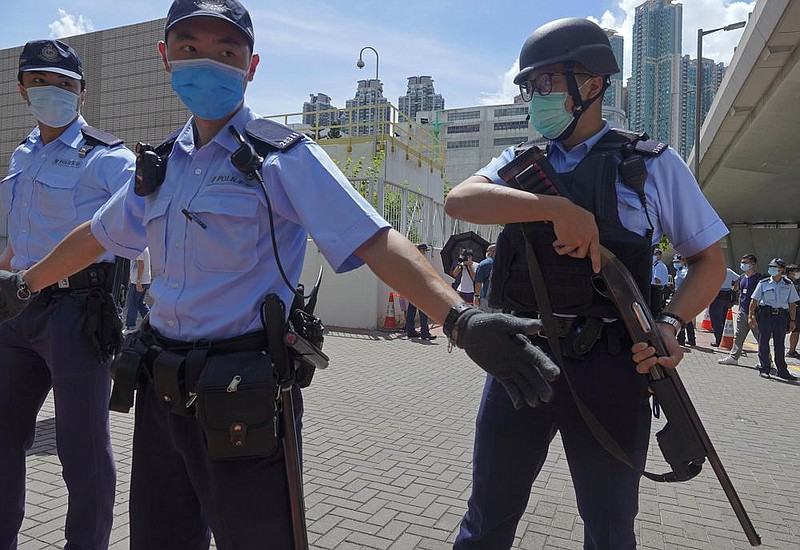HONG KONG -- In implementing the new national security law for Hong Kong, police will have sweeping authority that allows them to take actions including conducting searches without a warrant, restricting suspects from leaving the city and intercepting communications.
Hong Kong's government issued the details of Article 43 on Monday night. The specific rules take effect today.
Hanscom Smith, U.S. consul general to Hong Kong and Macau, said earlier Monday that it is a "tragedy" to see the semi-autonomous Chinese territory's new law chip away at freedoms in the Asian financial hub.
"Using the national security law to erode fundamental freedoms and to create an atmosphere of coercion and self-censorship is a tragedy for Hong Kong," Smith told reporters. "Hong Kong has been successful precisely because of its openness, and we'll do everything we can to maintain that."
[Video not showing up above? Click here to watch » https://www.youtube.com/watch?v=CYIfHnuC5X8]
According to the rules, police may be authorized to conduct searches for evidence without a warrant in "exceptional circumstances." Police may also apply for a warrant that requires a person suspected of violating the national security law to surrender their travel documents, thus restricting them from leaving Hong Kong.
Additionally, under the rules, written notices or restraining orders may be issued to freeze or confiscate property if there are "reasonable grounds" to suspect that the property is related to an offense endangering national security.
Platforms and publishers, as well as internet service providers, may also be ordered to take down messages that are "likely to constitute an offence endangering national security or is likely to cause the occurrence of an offence endangering national security."
Service providers who do not comply with such requests could face fines of up to roughly $13,000 and receive jail terms of six months.
Individuals who post such messages may also be asked to remove the message, or face similar fines and a jail term of one year.
Before the release of the implementation rules, Facebook, WhatsApp and Telegram said they would deny law enforcement requests for user data in Hong Kong as they assess the effect of the national security law.
The companies did not immediately respond to requests for comment on the new implementation rules.
Under the rules, Hong Kong Chief Executive Carrie Lam may also authorize police to intercept communications and conduct surveillance to "prevent and detect offences endangering national security."
Finally, written notices may also be served to a foreign political organization or Taiwan political organization, or individual agents, to furnish details on their activities related to Hong Kong. This includes details such as personal particulars, assets, income and expenditure of the organization in Hong Kong.
The details were released after the Committee for Safeguarding National Security of the Hong Kong Special Administrative Region, chaired by Lam, convened its first meeting Monday.
Hong Kong's national security law, imposed last week after anti-government protests in Hong Kong last year, makes secessionist, subversive, and terrorist activities illegal, as well as foreign intervention in the city's internal affairs. Any activities such as shouting slogans or holding up banners and flags calling for the city's independence are a violation of the law regardless of whether violence is used. The maximum penalty is life imprisonment.
The government has also specified that the popular protest slogan "Liberate Hong Kong, revolution of our time" has separatist connotations and is thus criminalized.
Critics see the new law as Beijing's boldest step yet to erase the legal firewall between the former British colony and the mainland's authoritarian Communist Party system.
In Hong Kong's public libraries, books by pro-democracy figures have been pulled from the shelves. Many pro-democracy shops that stood in solidarity with protesters have removed pro-democracy notes and artwork that adorned their walls.
A 23-year-old man, Tong Ying-kit, was the first person in Hong Kong to be charged under the law -- on charges of driving a motorcycle into a group of policemen while bearing a flag with the "Liberate Hong Kong" slogan.
Tong appeared in court Monday facing charges of incitement to secession and terrorist activities. He was denied bail.
Information for this article was contributed by Katie Tam of The Associated Press.






